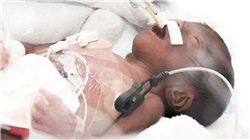University certificate
The world's largest faculty of medicine”
Description
With this 100% online program, you will gain in-depth, up-to-date knowledge on the management of specific Neurological Emergencies in children, allowing for more accurate and effective care in critical settings"

Neurological Emergencies in Pediatric Intensive Care Units (PICU) represent a significant clinical challenge, with a variety of conditions that can endanger the life and brain function of children. Therefore, rapid identification of symptoms, proper airway management and specialized intensive care are critical to improve outcomes in these vulnerable patients.
This is how this program was born, which will address the identification and proper management of Seizures and Status Epilepticus in pediatric patients. Therefore, physicians will be able to recognize the different types of Seizures, assess their severity and apply effective treatments to control them, therefore contributing to preserve brain function and stability of the child.
Likewise, professionals will be specialized in the diagnosis and treatment of the causes of altered state of consciousness, such as Pediatric Coma. In addition, they will be able to perform an exhaustive evaluation to identify possible etiologies, from traumatic injuries to metabolic disorders, as well as to implement appropriate therapeutic strategies for each clinical situation.
Finally, specialized knowledge will be provided on the recognition and response to signs of increased Intracranial Pressure and Cerebral Herniation, as well as the identification and treatment of Central Nervous System Infections, such as Meningitis and Encephalitis. Skills will also be acquired in neuroprotection techniques, to minimize secondary brain damage, as well as in the evaluation and management of acute complications of Chronic Neurological Diseases in children.
In this scenario, TECH has developed a complete online program, customized to meet the individual needs of students, eliminating obstacles such as travel to a physical location or the obligation to follow a fixed schedule. Additionally, it is based on the revolutionary Relearning methodology, which involves the repetition of essential concepts to guarantee an optimal and organic understanding of the contents.
This comprehensive approach will prepare you to effectively coordinate multidisciplinary care and rehabilitation, ensuring optimal care for pediatric patients who have experienced Neurological Emergencies"
This Postgraduate certificate in Neurological Emergencies in the PICU contains the most complete and up-to-date scientific program on the market. The most important features include:
- The development of practical cases presented by experts in Neurological Emergencies in the PICU
- The graphic, schematic and eminently practical contents with which it is conceived gather scientific and practical information on those disciplines that are indispensable for professional practice
- Practical exercises where the self-assessment process can be carried out to improve learning
- Its special emphasis on innovative methodologies
- Theoretical lessons, questions to the expert, debate forums on controversial topics, and individual reflection assignments
- Content that is accessible from any fixed or portable device with an Internet connection
You will apply neuroprotective techniques to minimize secondary brain damage, critical to improving outcomes in pediatric patients with Neurological Emergencies. What are you waiting to enroll?"
The program’s teaching staff includes professionals from the sector who contribute their work experience to this specializing program, as well as renowned specialists from leading societies and prestigious universities.
The multimedia content, developed with the latest educational technology, will provide the professional with situated and contextual learning, i.e., a simulated environment that will provide immersive education programmed to learn in real situations.
This program is designed around Problem-Based Learning, whereby the professional must try to solve the different professional practice situations that arise during the course. For this purpose, students will be assisted by an innovative interactive video system created by renowned and experienced experts.
You will acquire specialized skills to identify and properly manage Seizures and Status Epilepticus in children,from the best digital university in the world, according to Forbes"

You will delve into the diagnosis and treatment of the causes of altered state of consciousness, including Pediatric Coma, thanks to the best didactic materials, at the forefront of technology and education"
Syllabus
From the identification and management of Seizures, to the treatment of Acute and Chronic Neurological Illnesses, the program will provide comprehensive specialization in the diagnosis, evaluation and therapeutic interventions necessary to deal with neurological emergencies in children. Participants will acquire expertise in recognizing and responding to signs of increased intracranial pressure, as well as in the management of central nervous system infections, applying neuroprotective techniques to minimize secondary brain damage.

The content of this program in Neurological Emergencies in the PICU will cover a wide range of topics fundamental to the specialized care of pediatric patients in these critical situations"
Module 1. Neurological Emergencies in the Pediatric Intensive Care Unit
1.1. Management of the Pediatric Patient with Traumatic Brain Injury
1.1.1. Evaluation and Stabilization of Pediatric Patients with Head Trauma Following Current Trauma Protocols
1.1.2. Strategies for Monitoring and Management of Intracranial Pressure in Traumatic Head Injury
1.1.3. Long-term Multidisciplinary Management Plan to Improve Neurological Outcomes after Traumatic Brain Injury in Children
1.2. Seizures and Status Epilepticus in the ICU
1.2.1. Management of Seizures and Status Epilepticus in Critically Ill Pediatric Patients
1.2.2. Electroencephalographic (EEG) Monitoring to Guide the Management of Seizures and Status Epilepticus
1.2.3. Antiepileptic Treatment of the Pediatric ICU Patient
1.3. Pediatric Stroke
1.3.1. Stroke in Children and Response with Rapid Diagnostic Evaluations
1.3.2. Acute Treatments for Pediatric Ischemic and Hemorrhagic Stroke Based on Current Recommendations
1.3.3. Continuity of Care and Rehabilitation Planning for Pediatric Post-stroke Patients
1.4. Meningitis and Encephalitis in Children
1.4.1. Early Diagnosis of Meningitis and Encephalitis in Pediatric ICU by using Clinical Protocols and Laboratory Techniques
1.4.2. Administration of Antimicrobial Therapy and Supportive Care for the Treatment of Meningitis and Encephalitis
1.4.3. Monitoring and Management of Short and Long term Complications associated with Meningitis and Encephalitis in Children
1.5. Intracranial Hypertension Management
1.5.1. Intracranial Hypertension in Pediatric Patients Causes and Clinical Signs
1.5.2. Techniques for Management of Intracranial Hypertension Optimization of Head Position and Pharmacotherapy
1.5.3. Integration of Intracranial Pressure Monitoring in Clinical Decision Making and Treatment Adjustment
1.6. Neurological Monitoring in ICU
1.6.1. Implementation and Analysis of Continuous Neurological Monitoring to Guide Clinical Management: EEG and other Biomarkers
1.6.2. Assessment of Brain Function through Various Monitoring Modalities and Treatment Adjustment
1.6.3. Use of Neurological Monitoring Data for Prevention and Detection of Secondary Complications in the Pediatric ICU
1.7. Neuroprotection and Post-resuscitation Care
1.7.1. Neuroprotection Strategies to Minimize Secondary Brain Damage after Events such as Cardiac Arrest
1.7.2. Management of Temperature Control Therapy and other Post-resuscitation Care to Optimize Neurological Outcomes
1.7.3. A Multidisciplinary Approach to Rehabilitation and Family Support after Successful Resuscitation
1.8. Neuromuscular Diseases in the ICU
1.8.1. Diagnosis and Management of Acute and Chronic Neuromuscular Diseases in the PICU Setting
1.8.2. Ventilatory and Nutritional Support for Patients with Neuromuscular Diseases
1.8.3. Long-term Care Coordination and Transition Planning for Children with Neuromuscular Disease Requiring Intensive Care
1.9. Sedation and Analgesia in Neurointensivists
1.9.1. Application of Pharmacology Principles for the Safe and Effective Administration of Sedatives and Analgesics in Critically Ill Pediatric Patients with Neurological Conditions
1.9.2. Ongoing Assessment of the Level of Sedation and Pain in Pediatric Patients using Validated Scales to Ensure Appropriate Pain Management and Comfort
1.9.3. Development of Sedation and Sedation Withdrawal Protocols that Minimize the Risk of Delirium and other Side Effects and Promote Optimal Neurologic Recovery
1.10. Neurological Rehabilitation in the ICU
1.10.1. Implementation of Individualized Early Rehabilitation Programs for Pediatric Patients in the ICU that Address Specific Motor, Cognitive and Emotional Needs
1.10.2. Collaboration with a Multidisciplinary Team, including Physiotherapists and Occupational Therapists, to Integrate Neurological Rehabilitation into the Intensive Care Plan
1.10.3. Regular Assessment and Reporting of Progress in Neurological Rehabilitation, adjusting Treatment Strategies in Accordance with the Patient's Clinical Progress and Recovery Goals

You will address multidisciplinary care coordination and rehabilitation to ensure comprehensive and optimal care for pediatric patients facing Neurological Emergencies”
Postgraduate Certificate in Neurological Emergencies in the PICU
The Postgraduate Certificate in Neurological Emergencies in the PICU created by TECH Global University is an advanced training program designed for health professionals who wish to specialize in the management of emergencies in pediatric patients. This program, offered 100% online, provides a comprehensive understanding and practical skills essential to address critical situations related to the nervous system in the Pediatric Intensive Care Unit (PICU). This degree covers a wide range of topics essential to pediatric intensive care, focusing on neurological emergencies. You will learn to identify, evaluate and treat acute neurological disorders such as status epilepticus, encephalopathy, central nervous system infections and traumatic brain injury. Training is based on the latest scientific evidence, ensuring that you are up to date with the best available practices and techniques. An outstanding feature of the program is its practical and applied approach. Through simulations and case studies, you will be able to apply your knowledge in controlled situations, enhancing your decision-making skills and clinical competence.
Specialize in neurological emergencies in the PICU
The online mode of the course offers unique flexibility, allowing you to access educational content from anywhere and at any time. This flexibility is especially beneficial for balancing your training with your work and personal responsibilities. Through an advanced digital platform, you will have access to interactive material and discussion forums that facilitate dynamic and collaborative learning. The course is taught by a team of expert instructors in pediatric neurological emergencies, who provide continuous guidance and support throughout the program. These professionals, with extensive PICU experience, ensure that you receive high quality training and are prepared to apply your knowledge in clinical practice. Make the decision and enroll now! Not only will you enrich your knowledge and skills, but you will also enhance your professional opportunities and abilities to provide high quality care in neurological emergency situations. With a solid theoretical and practical foundation, you will be better prepared to meet the challenges of neurological care in the PICU, contributing significantly to improving the health and well-being of pediatric patients in critical situations.







